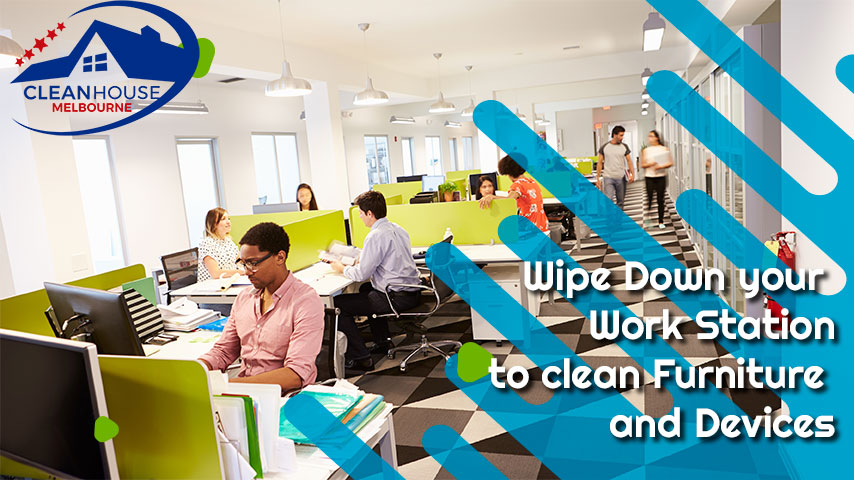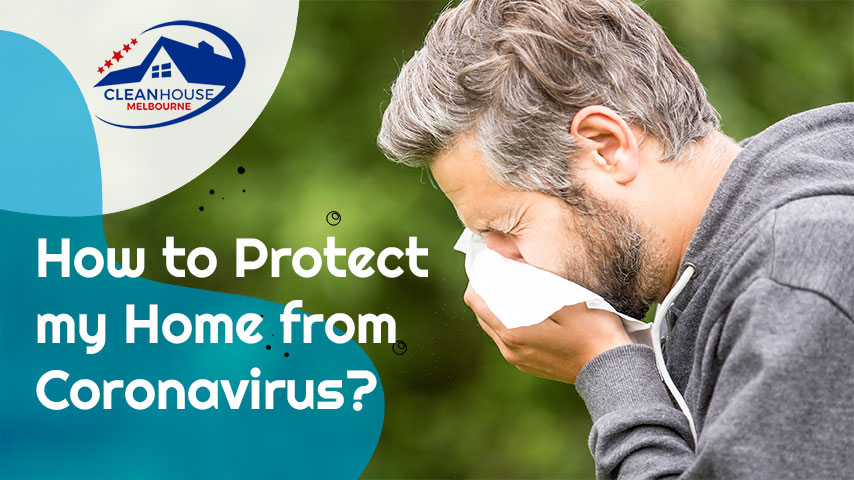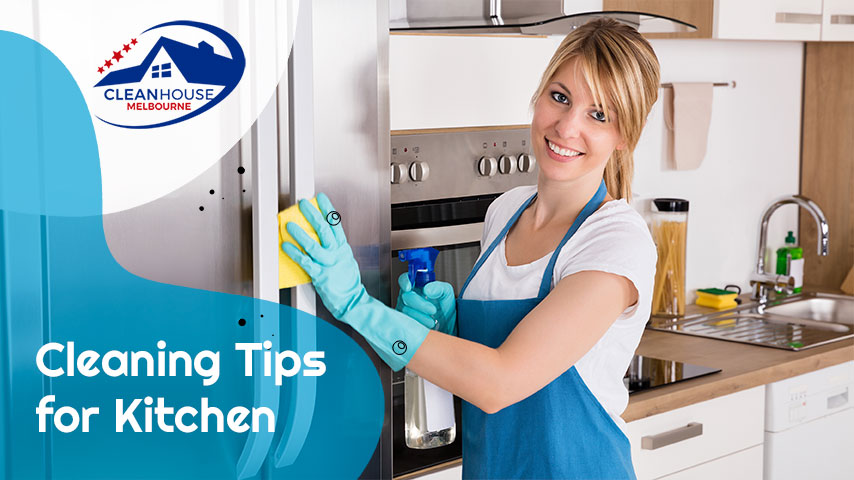It is no more news that coronavirus has become a deadly virus, threatening the whole world. Recently, the United States President declared the coronavirus outbreak a national emergency resulting from its widespread across the globe. In the light of this, the Centers for Disease Control (CDC) has charged offices and homes to make every possible effort to improve on their office policies to prevent the potential spread of the virus.
Cleaning and disinfection have been researched to be part of the essential steps recommended to protect your office and home from infections, such as coronavirus and other related germs. Whether areas or rooms with suspected cases or potential areas (such as business premises or public places) believed to be subjected to people with this COVID-19, this guide is equipped with recommendations and helpful information on cleaning and disinfection of such places.
The tips here will be useful for homes or public places, including offices, schools, colleges, and other related business community centers. We will also share tips on cleaning and disinfection of home. Read on!
Coronavirus and Cleaning
In a bid to prevent and protect the environment from the continuous spread of coronavirus around the world, there is already increasing demand for professional cleaning services to kick start the exercise. People are looking for ways to keep their dwelling spaces safe and disinfected against this virus.
Yeah! While it is a good practice always to wash and disinfect your hand and as well as avoid coming in close contact with the COVID-19 patients, there are other steps to take to deep-clean your office and home.
Researchers confirmed that the coronavirus transmits through respiratory droplets, and according to the Centers for Disease Control, it has been evidenced that the virus may remain feasible on material surfaces ranging from hours to days. Consequently, the need to clean and disinfect your home and office cannot be overemphasized to protect the environment.

How to Clean and Disinfect my Office from Coronavirus?
The Occupational Safety & Health Administration and Centers for Disease Control and Prevention have come up with a personal hygiene approach to properly disinfect office and business environments to maintain a healthy workplace during any pandemic outbreak such as coronavirus. Coronavirus is shown to transmit from person-to-person. But if you can stick to the tips discuss here, you will be ahead in keeping you and your employees safe.
Surfaces Cleaning and Disinfection
Two things are involved here, and these two things are the basic steps to prevent unforeseen pandemics, not only coronavirus. They are:
- Cleaning: Dirty surfaces should be cleaned thoroughly with soap or detergent before thinking of disinfecting them.
- Disinfection: Solutions of diluted household bleach and at least 70% alcohol with commonly used EPA-registered household disinfectants are recommended. However, if it is appropriate for the concerned surface:
- Only diluted household bleach solutions can be used to disinfect the surface. You only need to follow the steps as instructed by the manufacturer for correct application and adequate ventilation. You can prepare a homemade bleach solution by mixing 4 or 5 teaspoons of bleach per quart or gallon of water, respectively.
- Tip: Ensure you check the product to make sure it hasn’t expired. You can check this through the expiration date on it. It is worthy of mentioning that you shouldn’t mix ammonia or any other related cleanser with household bleach to prepare your solution. Studies have shown that up-to-date household bleach, if properly diluted is effective against coronavirus and other germs.
- Wear and manage gloves: Disposable gloves are recommended to be worn on both hands during surface cleaning and disinfection, and the same should be disposed of immediately after the exercise. In the case of reusable gloves, ensure you clean and disinfect them and don’t use such for other purposes except for COVID-19 surface cleaning and disinfection. Regardless of the type you opt for, make sure you wash your hands thoroughly as soon as the gloves are removed.
- Soft (porous) surfaces: For the case of porous surfaces like drapes, and especially carpeted rug or floors, ensure you get rid of visible contaminants with recommended cleaners for such surfaces as indicated by the manufacturer. Do this after cleaning soft surfaces:
- Make sure you use appropriate water setting to launder and dry items as instructed by the manufacturer. You can as well use suitable EPA-approved emerging viral pathogen claim products for porous surfaces like rug and carpet. Then, make sure your carpet is always clean throughout this period. You can read our post on how to keep your carpet clean.
Laundry Items – Clothing, Linens, Towels, and other Related Items
- Wear and manage gloves: Repeat the same process as discussed above for wearing and manage gloves. However, take note of the following:
- If you use your bare hands to handle dirty laundry items, ensure you clean and disinfect your hands immediately to remove any virus or germ.
- Avoid shaking dirty laundry to minimize the chances of spreading virus into the air, which can later get onto the surfaces.
- Make sure you use appropriate water setting to launder and dry items as instructed by the manufacturer. Avoid washing ill person’s dirty laundry with other people’s laundry.

Wipe Down your Work Station to clean Furniture and Devices
Make it a duty every day to wipe down your workstation with an EPA-approved products. This will help you disinfect all the electronics and furniture, including computers, keyboards, mice, desks, work phones, and other related surfaces or objects around you in your workstation. This is essential because you are not the only one using the stations. Each worker is expected to perform this task each time before starting their shift for the day. After disinfecting the station, allow up to 3 – 5 minutes to ensure wet surfaces are dried before siting.
Additional Personal Hygiene and Protective Measures for Cleaning Staff
Cleaning workers are most at risk in business premises if they don’t take adequate precautions in discharging their duties. They are expected to follow these useful tips:
- They should ensure they wear disposable gloves and clothing whenever they are performing their tasks, such as cleaning and handling trash. However, clothing and gloves should be in line with the disinfectant products used, as there are many types for various purposes.
- These should be removed in such a way to prevent contaminating the surrounding areas and wearers, and hands must be washed immediately after removal.
- If it is a healthcare center, gloves should be removed, and hand cleaned after cleaning a ward or space occupied by ill persons.
- Don’t forget to adhere to the standard preventive actions at both office and home, such as cleaning hands and mostly, avoid touching mouth, nose, eyes, or nose, with uncleaned hands. Remember, this is one of the ways COVID-19 transmits to people. In addition to this, ensure you clean and disinfect your hands immediately you do the following:
- before preparing food or eating at and after close of work
- after using either private or public restroom
- after sneezing, coughing, or blowing one’s nose
- after coming into contact with pets or other animals
- before or after taking care of another person in need of assistance.

How to Protect my Home from Coronavirus?
Personal preventive measures such as regular hand wash, using hand sanitizer, covering your sneezes and cough with a tissue or elbow, avoid touching nose and mouth, and stay indoor if you are sick (except on a medical trip) are some of the fundamental preventive guidelines of coronavirus. However, it does not stop there. There are other steps to take in your home to protect you and your household from this deadly coronavirus.
Cleaning, cleaning, and cleaning!
Below tips have been found helpful to everyone both home and away:
Clean Surfaces that are Commonly Touched by People
While COVID-19 virus is said to transmit primarily from one person to another, especially when someone comes into contact with the respiratory droplets of an infected person at close range, you can also come into contact with the virus if you touch an object or surface that had been contaminated with the virus. According to the Centers for Disease Control (CDC), when you touch your mouth, nose, or eyes after touching such a surface or object, you can be infected. It is recommended that you clean commonly touched surfaces or objects around the home regularly, not to take chances.
The surfaces include and not limited to countertops, doorknobs, cabinet handles, light switch, and much more. It only takes you a household detergent and water to clean such areas regularly. You can as well disinfect the areas after washing.
Remember also to clean your Electronics – Phones
Don’t overlook any surface in your home. Electronics have also been researched to accumulate germs. Electronics, such as phones are always with us wherever we go, and they can easily pick up germs in the process. However, many people don’t think about this, because our mobile phones have turned out to be part of us. Experts recommend that you regularly clean the surfaces of your phone using warm soap and water, or alcohol wipe. Do the same for other electronics, such as landline phones, keyboards, remote controls, and mice.
Use the Appropriate Cleaning Supplies
You can as well spread germs through the wrong use of cleaning supplies. Cleaning supplies such as mops and sponges should be used to clean and not to cause other problems in the home. Reusing dirty supplies is not advisable. Experts suggest using disposable cloths or wipes for cleaning. However, if you decide to reuse any cleaning supplies like cloths and sponges, make sure you wash them in hot or warmest water and subject them to the hottest drier after each use.
In the case of mop heads, ensure you rinse them in hot water for few moments after use, until the water clear out and air-dry it openly based on manufacturer instructions.
Cleaning Tips for Bathroom
If you are keen about keeping you and your household safe from the coronavirus, this place should always be a priority. As it was mentioned above, coronavirus is linked with water droplets from respiration, and bathrooms are also characterized by water; hence, you may never suspect any traces. Follow these tips to prevent the presence of infections in your bathroom:
- Regularly clean all bathroom surfaces such as sink, shower, and the toilet itself.
- Regularly clean hand towels and other bathroom cloths
- Don’t keep toothbrushes together
Avoid sharing hand towels and toothbrushes with a sick person

Cleaning Tips for Kitchen
Prepare food under top-notch hygiene. Always wash your hands before touching anything in the kitchen and ensure sick people don’t come into contact with already shared food. Designate drinking cups, plates, spoons, and other utensils to the ill person in the home. Clean dishes with soap and water and make sure they are thoroughly washed and dried. The hot setting is recommended if you are using a dishwasher. Remember always to clean commonly touched surfaces such as drawer pulls, countertops, fridge handles, and much more.
Professional Cleaning Service for your Home or Office
In this period of coronavirus, deep-cleaning the entire house is highly recommended to kick-start your preventive measure to protect your family against the outbreak of COVID-19. Homes and offices in Melbourne and Australia at large are not taking chances, as they are demanding for deep-cleaning of their homes and business premises, as a stepping stone to disinfect their spaces against infections. What are you waiting for? As part of our commitment to promote healthy environment, Clean House Melbourne has started a crusade to help people clean their homes and offices against coronavirus and also share helpful tips after delivering the service.
FAQs about Disinfect from COVID-19:
- How do I disinfect surfaces effectively during COVID-19?
Use EPA-approved disinfectants or diluted bleach solutions for hard surfaces. - Can I clean my electronics safely during the pandemic?
Use alcohol-based wipes for screens, keyboards, and phones, ensuring they’re not overly damp. - How should I handle laundry during COVID-19?
Avoid shaking laundry and use the hottest setting appropriate for the fabric. - What personal protective equipment should I wear when cleaning?
Disposable gloves are essential; wash hands thoroughly after use. - Why is it important to clean high-touch surfaces regularly?
Regular cleaning reduces the risk of virus transmission from contaminated surfaces. - Are DIY cleaning solutions effective against COVID-19?
Yes, diluted bleach or 70% alcohol solutions are effective if used properly. - How often should I disinfect my home office?
Disinfect high-touch areas like desks, keyboards, and phones daily. - Is professional cleaning necessary for COVID-19 disinfection?
For thorough coverage, especially in large spaces, professional services are recommended. - How should bathrooms be cleaned during COVID-19?
Clean and disinfect toilets, sinks, and surfaces frequently, using appropriate cleaning agents. - Can I prevent the spread of COVID-19 with proper cleaning practices?
Yes, consistent cleaning and disinfection of high-use areas significantly reduce the spread.
Wrap up
This post has discussed necessary measures to protect your home against the emergency outbreak of coronavirus, and the tips here are also perfect for general safeguard against germs, flu, and other infections that may come your way. For a start, you need deep cleaning, and you can then keep track of regular cleaning, as discussed above. For your deep cleaning of home or office, call Clean House Melbourne on 0407 094 444 for booking or more info about our service.


 Email Us
Email Us Whatsapp
Whatsapp


